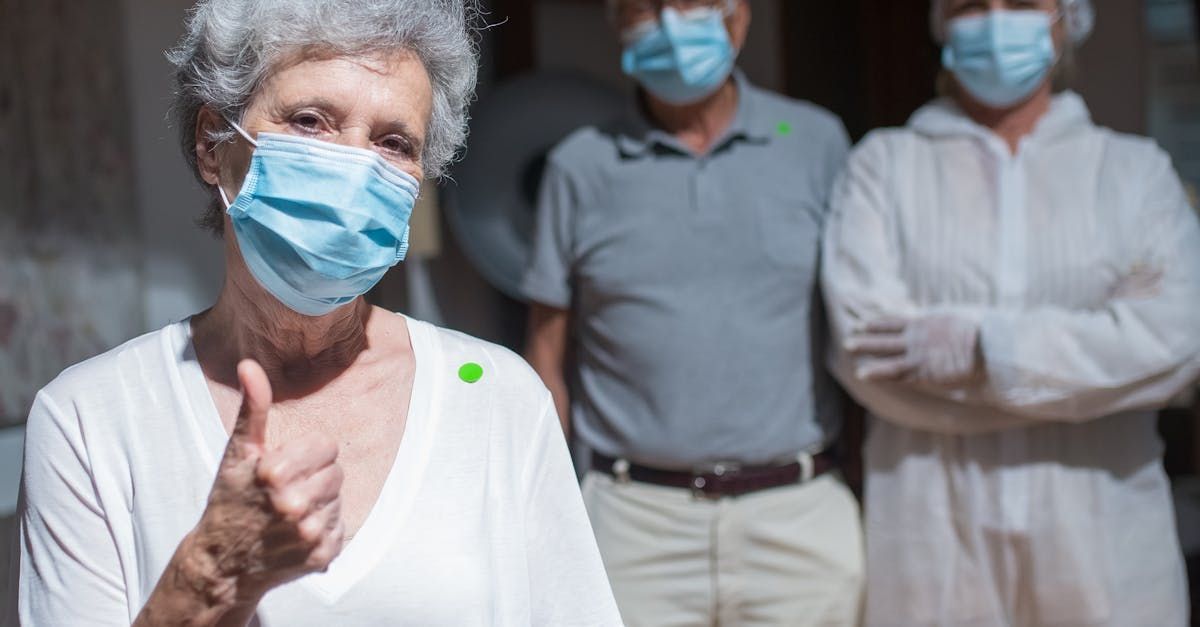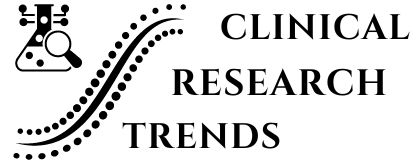Notable Labs' Innovative Approach to Cancer Treatment
Cancers are complex. Tough and tenacious, cancer cells are fueled by various processes and pathways, meaning that only a few types of cancer respond to established monotherapy drugs, Combination therapies, on the other hand, target multiple pathways that enable cancer to survive and spread.
This more comprehensive and personalized treatment regimen addresses the cancer’s various makeup and patients’ unique genetic profiles to arrive at drug combinations tailored for each case.
Personalized, precision medicine is “essential in…improving patient outcomes and quality of life. “Identifying specific genetic and molecular alterations in a patient’s tumor to predict how they will respond to various treatments, (Clinical Stage 2024).
Notable Labs’ innovative approach to combination therapy holds promise for significantly improving cancer treatment outcomes, despite current limitations in commercial pursuit. Notable Labs studies, predicts, and tests innumerable bioassays, measures, and responses to arrive at pharmaceutical combinations that perform and cumulatively deliver results greater than the sum of their parts (Mokhtari et al., 2017). Notable’s work allows for fast-tracked drug development in specific patient populations by identifying clinically responsive test subjects.
How Combination Therapy Works: The Science
Cancer often frustrates the efforts of monotherapy drug developers due to its multifaceted structure. Each type of disease, from breast cancer to leukemia to melanoma, is a distinct collection of cellular abnormalities. Each variation exhibits various characteristics, making them adept at avoiding and surviving treatments that rely on single drugs. Conversely, combination therapy wields an arsenal of weapons and launches multi-pronged attacks on several fronts. Here's a breakdown of the science behind combination therapy:
Targeting Multiple Weaknesses
Cancer cells have many chinks in their armor. Some may be driven by genetic mutations that drive uncontrollable growth. Others may proliferate by exploiting growth, longevity, and reproduction pathways. Combination therapy targets the disease along different pathways, using different modalities, and focusing on various stages of cell development and activation to exploit cancer’s many weaknesses simultaneously. For example, one drug might deactivate a protein essential for the cancer cell's survival, while another drug disrupts its ability to divide and replicate.
Overcoming Resistance Mechanisms
Many cancers have evolved to quickly develop adaptations and resistance to the drugs used to treat them. Combination therapy overcomes this tendency by hitting the cancer from multiple angles, making it less likely for resistance to develop to all drugs simultaneously or find alternate pathways when one is shut down. Including in the combination therapy drugs that stimulate the immune system can train the body to recognize and eliminate cancer cells. This two-pronged approach makes it more difficult for cancer to evade treatment. Adaptive response continues even if the cancer develops resistance to the targeted-response drugs.
Leveraging Synergistic Effects
The elegance of combination therapy lies not just in targeting multiple weaknesses, but also in the potential for synergistic effects. Certain drug combinations can work in tandem in a way that enhances the effectiveness of each individual drug. For example, one drug might weaken the cancer cell's defenses, allowing another drug to penetrate and deliver a lethal blow.
Notable’s Predictive Precision Medicines Platform
Despite its breakthroughs in combination therapies for cancer treatment, Notable Labs remains primarily a predictive precision therapeutics company. the company sees the greatest opportunities both for profits and for positively influencing patient outcomes in perfecting and developing applications for its proprietary Predictive Precision Medicines Platform (PPMP).
Notable Labs has opted not to pursue combination therapy administration commercially in order to continue focusing on its mission to further identify treatments at the clinical stage. By concentrating its efforts in personalized medicine and predictive analytics, Notable will extend its competitive edge and help healthcare providers and researchers better incorporate precision medication into their diagnostic and treatment processes.
Notable isn't resting on its current diagnostics capability laurels. It continues to push the envelope by developing even more sophisticated prediction models while working to remove the regulatory and logistical roadblocks that could hamper precision medication’s market penetration to ensure Notable's diagnostic innovations reach more people, maximizing their potential to save lives.
The PPMP and development pipeline’s ability to isolate and fast-track viable drug combinations for specific patients with leukemia and other cancers offers several important benefits in addition to the primary advantage of targeted therapies and fewer adverse side effects and drug interactions:
Faster Development Time
Identifying effective drug combinations through bio-simulation skips lengthy stages of traditional drug response prediction, potentially accelerating time to market for new treatment options.
Reduced Costs
Utilizing existing drugs avoids the high costs associated with developing entirely new compounds.
Increased Clinical Trial Successes
Matching patients with the most effective drug combinations based on their specific cancer profile can significantly improve clinical trial outcomes.
Data-Inspired Approach
Notable Labs achieves these optimal results by harnessing the power of data, simulation, and artificial intelligence. The PPMP is a constantly evolving platform. As more patient data and treatment outcomes are added to the system’s samples, algorithms become more refined, and the predictive accuracy improves.
This continuous learning loop allows Notable Labs to tailor their pipeline for even more effective and personalized combination therapies for various blood cancers.
Here's how the development pipeline works:
Bio-Simulation
Instead of relying exclusively on traditional clinical trials, the company’s high-throughput platform mimics cancer response in vitro using cancer cells harvested from actual patients and a library of potential therapeutic compounds. This allows large-scale testing of multiple drug combinations in real-world case studies.
Data Analysis
The PPMP captures massive amounts of data on how the cancer cells respond to various drug combinations. This data includes cell viability, growth patterns, and gene expression. Advanced algorithms and machine learning then analyze this data, identifying patterns and predicting which drug combinations are most likely to be effective for a specific patient.
Prediction, Not Discovery
Unlike traditional drug discovery efforts that focus on finding entirely new drugs, Notable Labs leverages a vast collection of already-tested drugs to identify effective combinations of well-characterized drugs keeping development time and potential side effects to a minimum.
Clinical Test Successes
PPMP predictions guide the design and patient enrollment of clinically validated trials, cohorts of patients with similar cancer profiles are treated with the combinations the platform’s bio-simulation tests identify as potentially the most effective. This increases trials’ success rates and exposes patients only to treatments that hold the most promise.
The Future of Combination Therapy
Combination therapy has emerged as the standard of care for blood cancers. As Notable Labs’ researchers constantly explore new drug combinations and treatment strategies, the future of combination therapy holds significant promise, particularly in the fields of oncology, infectious diseases, and chronic conditions. Here are some key trends and potential developments that could shape its trajectory:
Combination therapies are increasingly being tailored to individual patient profiles through advances in personalized medicine. By leveraging genomic data and biomarkers, healthcare providers can design bespoke combination treatments that target the specific genetic and molecular characteristics of a patient's illness, enhancing efficacy and reducing adverse effects. This results in more sophisticated combination therapies for other types of cancer, notably, breast, lung, colorectal, ovarian, and bladder cancers. While oncology has been a primary focus, combination therapies are also gaining traction in other areas such as infectious diseases like HIV and tuberculosis, autoimmune disorders, and neurological conditions. The ability to attack multiple pathways simultaneously can be particularly advantageous in treating complex, multi-faceted diseases. Moreover, advances in drug delivery systems, such as nanoparticles, liposomes, and conjugates will improve the bioavailability and targeting of multiple drugs simultaneously, minimizing side effects and maximizing therapeutic outcomes.
As combination therapies continue to matriculate into the mainstream, regulatory agencies are adapting to their complexities. Notable Labs’ astounding success rates contribute to the growing recognition of the need for streamlined approval processes and clear guidelines specifically tailored to combination products. This evolution could accelerate the availability of new combination therapies on the market and open additional pathways to commercialization. As combination treatments become more cost-competitive with monotherapy, pricing strategies for multi-drug regimens mature, and the impact on healthcare budgets become more quantifiable, adoption will become universal.
Notable Labs Leadership
Matt DeSilva and Peter Quinzio founded Notable Labs to redefine the way cancer is treated. Their patient-centricity has manifested in an individualized laboratory testing service for cancer patients and their doctors and facilities to screen thousands of FDA-approved drugs against the patients’ own cancer cells.
CEO Thomas Bock has been the mission’s caretaker since 2021. His background in shepherding entrepreneurial medical organizations to successful medical and investment outcomes perfectly positions him to spearhead the company’s Predictive Precision Medicine Platform and bring Notable’s novel cancer medicines to market.
RESOURCES
“Insights from Notable Labs' Predictive Precision Medicine Platform.” Clinical Stage (2024),
https://www.clinicalstage.net/insights-from-notable-labs-predictive-precision-medicine-platform
Mokhtari, BM, TS Homayouni, N Baluch, E Morgatskaya, S Kumar, B. Das, and H Yeger, “Combination Therapy in Combating Cancer.” Oncotarget (2017, June 6). https://www.ncbi.nlm.nih.gov/pmc/articles/PMC5514969/
About the Author
Scott Smith is a freelance writer and marketing director with experience in content development, campaign strategy and implementation, media relations, and social media. A former newspaper reporter, editor, and columnist, he maintains a prolific freelance writing career, writing blogs, whitepapers, press releases, and marketing collateral for various clients. He is the author of Moon Nevada, a cultural, historical, travel guide to the Silver State and has been published in American History, Elks, Wild West, USA Today, Nevada, and other periodicals. He has an undergraduate degree in journalism and an MBA in services marketing. Before becoming a full-time freelancer and consultant, Smith served for 20 years as a marketing manager and public relations director in the private, public, and non-profit sectors.
Disclaimer
The content of these blogs reflects the research and opinions of the individual authors and does not necessarily represent the views or positions of Notable Labs or its affiliates. The information provided is for educational and informational purposes only and should not be construed as medical, legal, or financial advice.
Notable Labs makes no representations as to the accuracy, completeness, or validity of any information in these blogs and will not be liable for any errors, omissions, or any losses, injuries, or damages arising from their use.
These blogs may reference third-party research, studies, or resources. Notable Labs does not endorse or assume responsibility for the content or practices of these third parties. Any reliance on the information provided is at the reader's own risk.
For biotechnology and pharmaceutical content, note that ongoing research and clinical trials may change the context and results discussed.
Always refer to the latest research and guidelines from reputable sources.










Join Our New Letter










